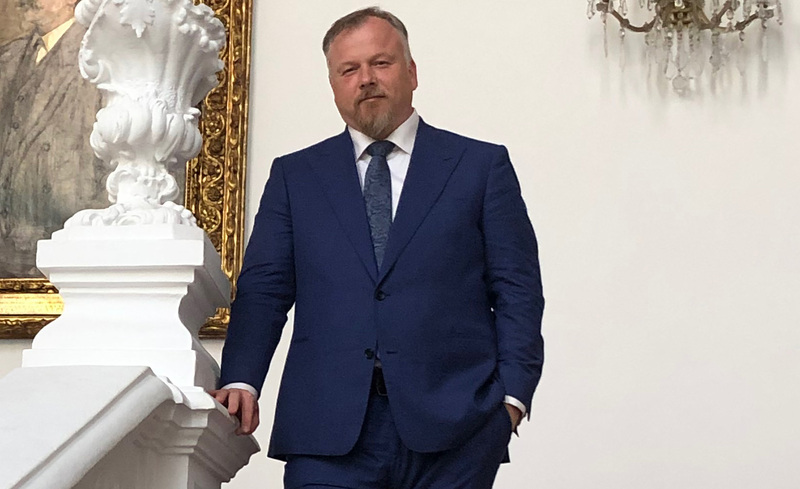The strategy against hybrid threats exists already, now it’s the government's turn
In mid-March, the Standing Committee on Hybrid Threats of the Chamber of Deputies met in its closed session. According to the approved program, its task was to address, inter alia, the hybrid threat strategy and action plan. We therefore asked its chairman, MP Robert Králíček (ANO), about the results of this meeting.

Picture: Robert Králíček, Chairman of the Standing Committee on Hybrid Threats | CC BY-NC-ND
1) Mr Chairman, at the recent meeting, you aimed to address the Strategy for Combating Hybrid Threats. Can you be more specific?
We have been dealing with hybrid threats within our Commission for a long time. So far the last step in this direction is the Strategy for Combating Hybrid Threats, which has been prepared and has so far been published internally by the Ministry of Defense. I cannot reveal too much content, but both the Ministry of Defense and the Commission on Hybrid Threats agree that hybrid threats are one of the most serious security risks today. And that defense against them will require the involvement of all the security forces at the disposal of the state. The strategy has already been passed by the State Security Council and should be approved by the Government by April.
2) What hybrid threats do you personally perceive as the greatest in our country?
If we are talking about current events, I see the misinformation associated with the covid and especially with the vaccination on the one hand, which worsen the course and management of the ongoing pandemic, as fundamental threats.
On the other hand, ongoing and increasingly sophisticated cyber attacks on state and public institutions. In recent weeks alone, it has been announced that the systems of the City of Prague, for example, but also, for example, the Medical Facility of the Ministry of the Interior, which are affected by a large amount of sensitive data on thousands of members of the security forces, have come under attack

Picture: I see the misinformation associated with the covid and the continuing increasingly sophisticated cyber attacks on state and public institutions as fundamental threats. (illustration photo) | Shutterstock
3) Hybrid threats have recently been the subject of intense talk. What do you think needs to be done as soon as possible?
Hybrid threats have been talked about for a long time, and I see the change in the fact that we are now beginning to move from words to deeds. We have a new national strategy, Military Intelligence will soon have enhanced cyber security powers thanks to an amendment to the law, and we have a newly revived Hybrid Threats Group within the State Security Council. What we would need now is a new position of a kind of National Security Coordinator, directly at the Office of the Government, with his own apparatus and powers, who would be able to coordinate the activities of individual security forces so that they can face often very diverse threats. I have been promoting the creation of this function for a long time - in Britain or the United States equivalent functions exist and play an irreplaceable role in the local security systems. But now it is finally becoming a political issue that is beginning to be talked about, and it seems that this vision could be realized.
Member of Parliament Robert Králíček is the Chairman of the Standing Committee on Hybrid Threats, member of the Security Committee and the Committee on Budgets, Vice-Chairman of the Standing Committee on the Security Information Service (BIS) Control and member of the Standing Committees on General Inspectorate of Security Forces (GIBS). He deals with hybrid and cyber threats, information security and smart technologies. Since September 29, 2020, he has been the chairman of the newly established Standing Commission on Hybrid Threats, which has the task of dealing with the state of protection of the Czech Republic against these threats and further enforcing and controlling changes in state administration, defense and other institutions to deal with this issue.





















